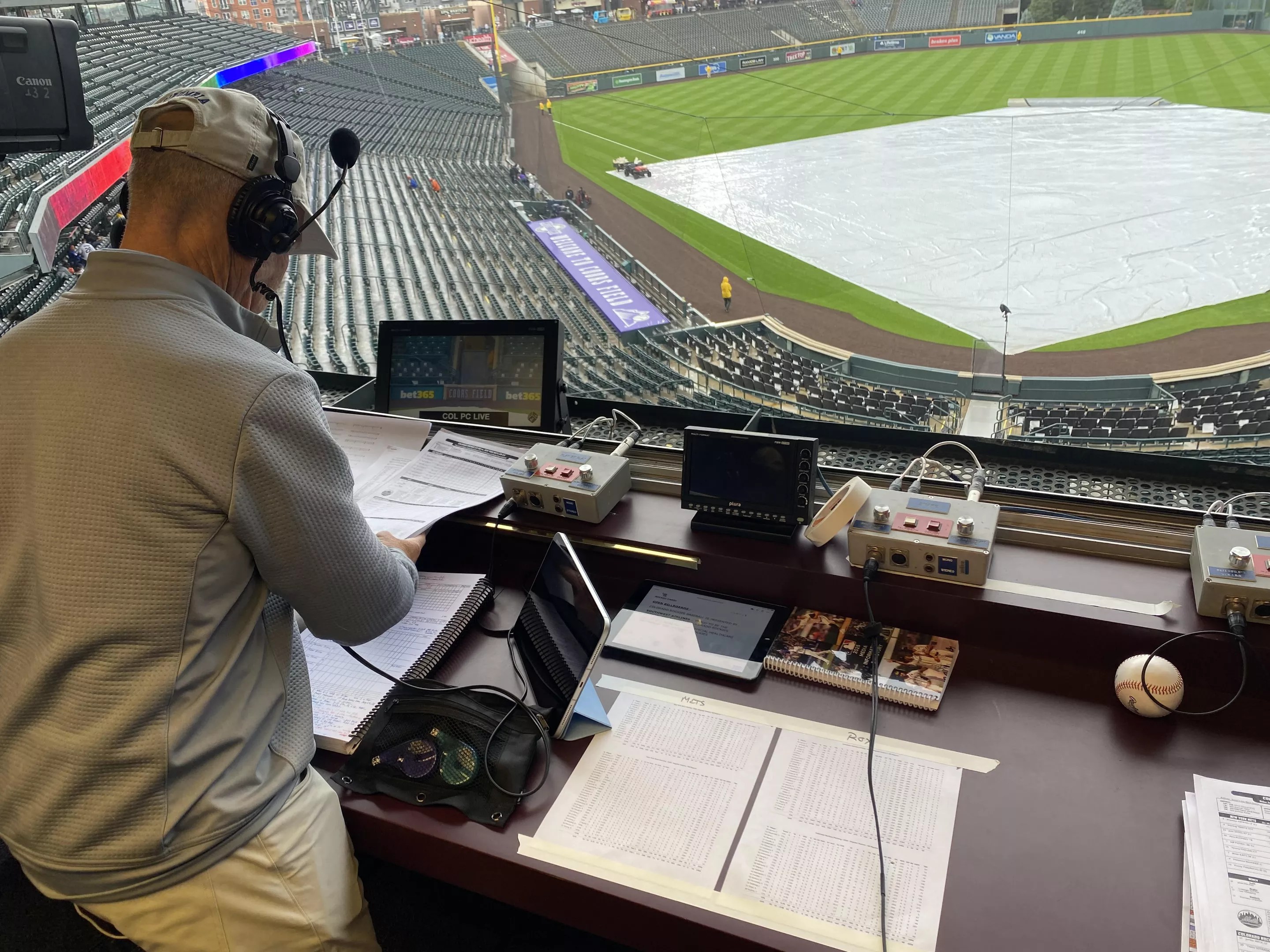
Michael Roberts

Audio By Carbonatix
Baseball fans who want to hear Drew Goodman call Rockies games still have that opportunity. But figuring out how to view them has gotten more difficult in recent years owing to the troubles experienced by regional sports networks, or RSNs.
In the beginning, Rockies fare was easily accessible. KWGN/Channel 2 broadcast games for ten years, beginning with the club’s first in 1993; in 1997, Fox Sports Rocky Mountain became the designated cable provider. The Fox Sports offerings were later rebranded as Root Sports before being brought under the umbrella of AT&T SportsNet, founded in 2009. But in 2023, AT&T SportsNet Rocky Mountain, the Rockies’ television partner, went belly up – and it wasn’t the only RSN to wind up in that position.
Darrin Duber Smith, a retired senior lecturer for the University of Northern Colorado, among other institutions, is a nationwide authority on RSNs. “The sports-network model is broken,” he says. “The fact is, the system is over-fragmented. There are too many choices for too few eyeballs, which means you can’t generate enough money to turn a profit.”
This scenario goes for both traditional media entities and team-owned operations such as Altitude, the television home of the Colorado Avalanche and Denver Nuggets, which was booted off Comcast, the state’s largest cable provider, in 2019 and didn’t return until this year. But despite this fragile peace, Duber Smith still believes that “there’s no money in regional sports. And that’s not just a problem here, but in a lot of places.”
True enough. After AT&T SportsNet Rocky Mountain cratered, Major League Baseball itself took control of Rockies broadcasts, and today it’s doing the same for five other franchises without separate television deals: the Arizona Diamondbacks, the San Diego Padres, the Cleveland Guardians, the Minnesota Twins and the Seattle Mariners.
The Rockies are luckier than some of these teams. KTVD/Channel 20, a sibling station of 9News, has contracted to simulcast ten games throughout the season; the June 6 Mets matchup was one of them. Comcast also offers a Rockies slot that functions something like NFL Red Zone; when live games or repeats aren’t airing, the channel broadcasts the Rockies logo and a snippet of music on a loop. Other platforms include DIRECTV, Spectrum and Fubo. Games can also be streamed on the MLB app with a subscription to Rockies.TV for $37.99 per year, or $74.99 as part of the complete MLB package.
Overall viewership numbers aren’t available. But game producer Alison Vigil is happy with how the system is working. “I think our product is as good today as it’s ever been,” she says, “and we feel very supported by MLB, which is making sure the Rockies are accessible and on TV.”
Goodman is philosophical about the changes. “RSNs were a cash cow for a long time,” he points out. “But close to half the country has cut the cord. Comcast and DIRECTV and all these providers were losing subscribers right and left, and the most expensive channels on their menu were the sports channels. Ultimately, the RSN business took a huge hit and in some cases has gone away – and we were one of the RSNs that went away.”
As a result, he’s grateful that Major League Baseball not only stepped in, but kept the Rockies’ television unit intact. “We have a very tight-knit TV family,” he stresses, “and I think that’s one of the reasons we’ve had really great broadcasts this year, even though the team we all want to win hasn’t won very much.”